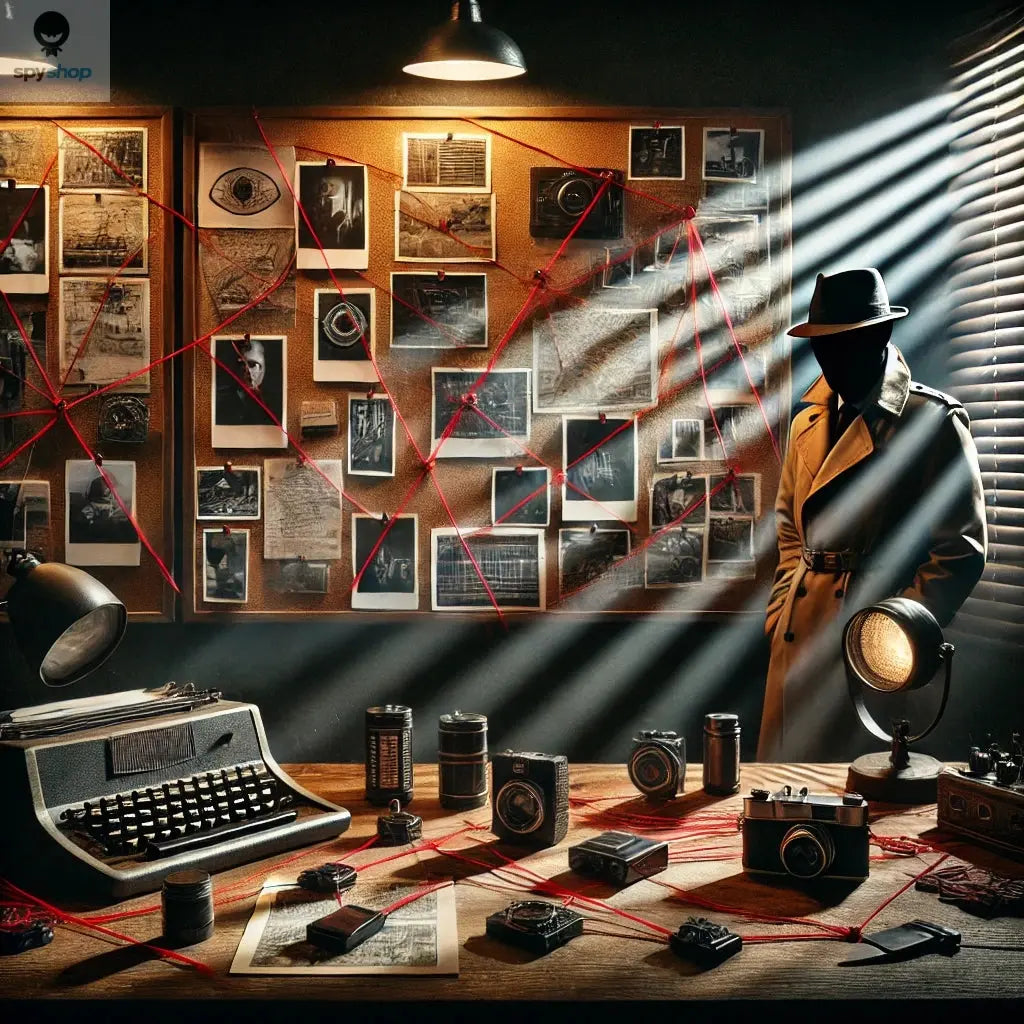
Black Mirror's Predictions: Did the Show Foresee Today’s Tech?
Close-up of a shattered glass screen on a dark background.
Tags: Future Technology, Black Mirror, Surveillance, Privacy, Ethical Technology
The Emmy-winning TV series Black Mirror has captivated audiences with its often dystopian portrayal of future technologies. While the show exaggerates for dramatic effect, many of its speculative ideas have eerie parallels to real-world advancements. The uncanny similarities between Black Mirror's episodes and today's technology raise questions about the direction society is heading. Are we inching closer to living in a tech-dominated surveillance state where privacy is a relic of the past? Let’s delve into how Black Mirror’s fictional technologies mirror our reality, particularly in the realm of spying and surveillance.
The Reality Behind “Arkangel”: Parent Monitoring Technologies
In the episode Arkangel, a mother implants a chip in her child to monitor her every move, block harmful visuals, and even track her health in real time. While such implants don’t yet exist, modern parental control apps come eerily close.
Today’s tools like Google Family Link and Bark allow parents to monitor their children’s online activity, track location, and even restrict app usage. Although designed with good intentions, these tools spark debates about privacy and parental overreach. Are we fostering security or stifling independence? As Black Mirror suggests, the line between protection and intrusion is razor-thin.
Digital Cloning in “White Christmas” and Today’s Data Economy
The White Christmas episode introduced the concept of “cookies,” digital replicas of a person’s consciousness, used to control smart homes. While digital clones remain a sci-fi concept, the vast data profiles companies compile today mimic this idea.
Tech giants like Amazon, Google, and Facebook collect vast amounts of personal data to create virtual versions of us. These data profiles predict our preferences, habits, and behaviours, shaping everything from the ads we see to the products we buy. Meanwhile, smart home assistants like Alexa and Google Home are constantly “listening,” feeding into these data ecosystems.
The ethical dilemma? This data can be exploited, sold, or even weaponized, making the White Christmas scenario not as far-fetched as it first seemed.
“Nosedive” and the Social Media Dystopia
In Nosedive, people’s social interactions are rated, and these scores dictate their societal status. While we don’t yet live under such an explicit scoring system, China’s Social Credit System comes alarmingly close. This real-world initiative assigns citizens scores based on behaviours like bill payment timeliness and social conduct.
Meanwhile, social media platforms like Instagram, TikTok, and Facebook indirectly create similar dynamics. Metrics like likes, shares, and followers influence perceptions of worth, both online and offline. For many, social media metrics determine access to opportunities, echoing the hierarchy seen in Nosedive.
IoT Vulnerabilities and “Hated in the Nation”
The robotic bees in Hated in the Nation are hijacked and weaponized, illustrating the dark side of interconnected devices. In our world, the Internet of Things (IoT)—from smart fridges to home security cameras—introduces significant vulnerabilities.
Poorly secured devices can be exploited, as demonstrated by the Mirai botnet attack, where hackers used IoT devices to launch a massive cyber assault. As the number of interconnected gadgets grows, the risks of misuse, akin to the robotic bees in Black Mirror, also multiply.
Spyware: The Modern-Day “Big Brother”
One of the most chilling parallels to Black Mirror is the rise of spyware technologies. Real-world tools like Pegasus, developed by the NSO Group, have the power to turn smartphones into surveillance devices. They can record calls, access messages, and activate cameras and microphones—all without the user’s knowledge.
Similarly, stalkerware apps, often used in abusive relationships, allow individuals to track partners covertly. These apps blur ethical lines, turning personal technology into tools of oppression. The implications are clear: we are edging closer to Black Mirror’s surveillance nightmares.
Ethical Questions in the Digital Era
As technology races ahead, society grapples with its implications. Each advancement in data collection, surveillance, or AI raises ethical questions. How much privacy are we willing to sacrifice for convenience or safety?
Legislation, such as GDPR in Europe, aims to safeguard user data, but enforcement is inconsistent, and loopholes abound. Meanwhile, tech companies face mounting pressure to prioritize ethical design. Still, innovation often outpaces regulation, creating a Wild West of unchecked possibilities.
Preparing for the Future
So, how can individuals and society navigate this high-tech landscape responsibly? Here are some actionable steps:
- Advocate for Stronger Privacy Laws: Push for global standards that protect personal data and penalize breaches.
- Adopt Secure Practices: Use tools like VPNs, encrypted messaging apps, and password managers to safeguard personal information.
- Educate Yourself: Understand the risks associated with IoT devices, social media, and spyware. Knowledge is the first line of defense.
- Demand Accountability: Hold tech companies responsible for ensuring ethical practices in data collection and AI deployment.
Black Mirror: A Reflection of Our Times
Black Mirror doesn’t just entertain—it holds up a mirror to society, forcing us to confront uncomfortable truths about technology’s role in our lives. While its scenarios often exaggerate reality, they serve as cautionary tales, urging us to think critically about the direction we’re heading.
In the end, the question isn’t whether Black Mirror got it right, but whether we’ll heed its warnings. Technology has immense potential to improve lives, but without ethical considerations, it risks eroding the very fabric of privacy and trust that binds us together.
Let’s use the lessons from Black Mirror not just as warnings but as a guide to build a future where technology enhances humanity without compromising our core values.
Tags: Ethical Technology, Future Trends, Surveillance, Cybersecurity, Data Privacy

